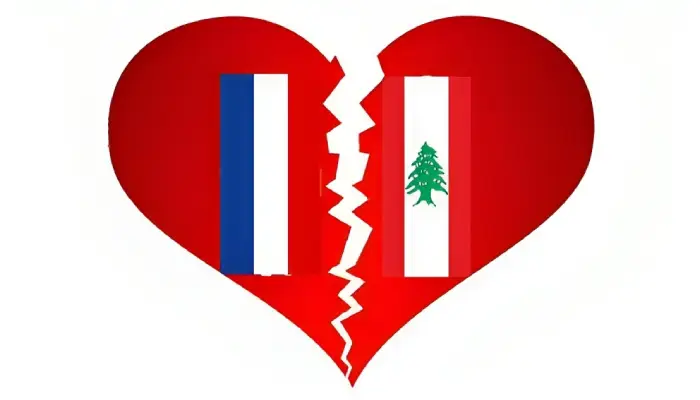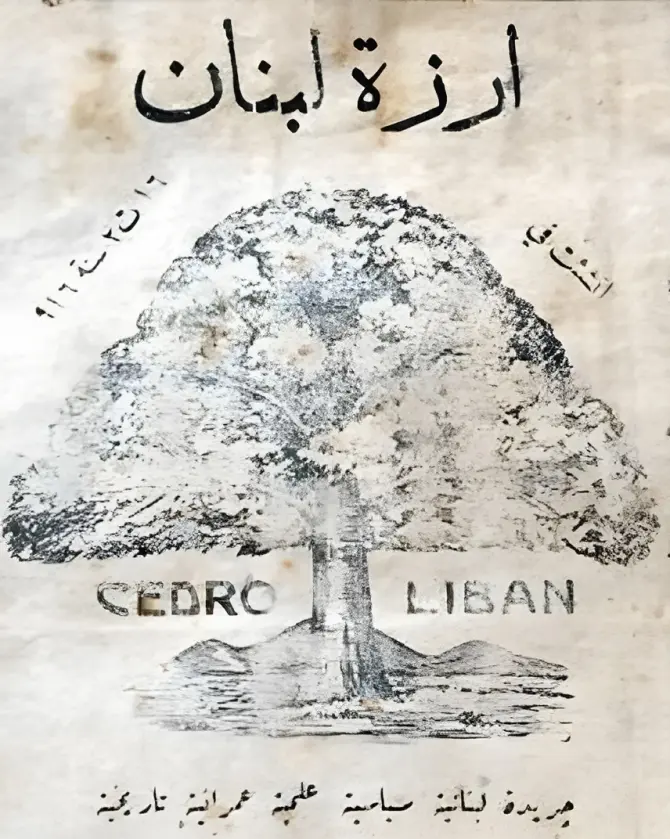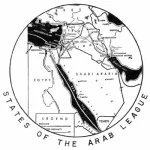No one doubts the slow decline of the French language (Francophonie) in Lebanon, a warning sign of future fractures to come. Arabic having chased French as the official language, American English now dominates in every field, in the street and in every institution. Lebanon is not the only one to undergo this mutation; the French language itself, even in France, we are constantly told, officially absorbs about a hundred English words per month. Most universities and schools in Lebanon have become anglophone, either entirely or partially, with the French language becoming the poor relative of English, like a relic of a long gone past but which one keeps in a corner like a dying ancestor. Many of these institutions have no compunction in fact sticking the word “American” somewhere in their names.
Catholicism had been the glue joining Lebanon and the West since antiquity when the Maronites, a tiny minority in the East, adhered to Western doctrinal theses in the conflict that separated Rome from the eastern Orthodox church. Then there were the Crusades that reaffirmed that connection. Yet France today is no longer Catholic. It is no longer the eldest daughter of the Church, neither in its official institutions nor in the daily lives of its citizens. France is a secular country; some would even say an atheist country. Only a Catholic right-wing minority that is nostalgic of the French monarchy and declining on account of its racism and reactionary and revisionist ideas provides a tepid and largely mediocre support to its old Maronite allies.
Ever since the Maronites, in their macho mountain peasant politics, expelled their age-old protector French in 1943 to obtain Lebanon’s independence, France has ceased its political support to Lebanon and the Maronites. Naturally, there still exists a nostalgia for the French Mandate by some Lebanese, particularly among the ultra-religious conservative ranks of the Maronites. But facts on the ground prove that France no longer finds in Lebanon this post-colonial space it continues to nurture in Africa for example. Lebanon has no natural resources and doesn’t even offer the potential of a developing country in cutting-edge technology and science. Lebanon is a country that consumes, produces and invents nothing, and is a source of constant problems in need of solutions.
With the advent of the State of Israel, which was initially a British colony tasked with ensuring access to Middle Eastern oil, and which the Americans subsequently recuperated, all of the Near East and Middle East have been ticking to the Anglo-Saxon clock. And as Israel is by far more advanced than Lebanon in technological development, it has gradually supplanted Lebanon as a port of entry or guard post of the West into the region. Throughout the 19th century, the « Near East Question » (La Question d’Orient) consisted in protecting the Christian minorities, most notably the Maronites, and was thus used as a pretext for the West to intervene in the region. Although interests always undergird relations between nations, the pretext was on the surface at least of a moral nature, namely to defend the Christians against Muslim threats, Ottoman Turkish initially then Arab. Today, after the Holocaust and the gigantic guilt complex that Europe inflicted upon itself due to its responsibility in perpetrating it, Israel has not only replaced Lebanon as a guard post of the West in the Near East, and therefore as a pretext for intervention, but it has become the object of even greater, albeit guilt-laden, sympathy that a Christian Lebanon used to benefit from during the 19th century. But more importantly, Israel is anglophone and far more superior to Lebanon in science and technology. Israel is today a more beneficial bastion of western defense in the Near East than Lebanon ever was. Moreover, the Lebanese are unreliable: Again, it was the Maronites of 1943 who evicted their French protectors, at a time when France was on its knees, vulnerable and occupied by Nazi Germany.
Beyond the antiquated morality of an archaic and declining form of Christianity, with their incessant dispatching of beatification candidates to the Vatican and their incurable reduction of creativity to building statues of the Virgin and saints on every hilltop of their mountains, when they would do better to build research laboratories and invest the so-called Lebanese “genius” toward more humanistic, less mercantile objectives, and without that Bronze Age religious fervor that they actually do not apply in their daily life (suggesting bigotry), the Maronites, and by extension Lebanon, have nothing to offer to the West in general and to France in particular.
The present policies of France vis-à-vis Lebanon’s perennial crises are proof: France seems tired of Lebanon; it has no grip on its interminable crises and events that keep succeeding one another. As a result, President Macron’s government came up with a tired old stale solution to the inability of the Lebanese to elect a president: backroom consensus deal that overrides democracy. The French seem to be thinking: Let’s get it over with this Lebanese headache, whatever the cost, even if we have to keep Iran and Hezbollah in charge of Lebanon’s governance. We have other cats to skin than this country which is but a source of headaches and from which we derive little strategic, commercial or even cultural benefits. It may well be that anticlerical, revolutionary and secular France is embarrassed by its friendship with a Lebanon that smacks of ultra-religious obsolescence.
In the good old days, when France was still a first-class world – and colonial – power, it would send a frigate or land some troops. Even the Americans, in their naive beginnings as a superpower, sent the Marines, alone in 1958 then with France in 1982, perhaps to save a vacillating Maronite regime that was corrupt and indigestible by its complexities. But faced with the incompetence of the Maronites, their medieval feudalism, their Mafia practices, and the ease with which they switch their allegiance toward more trendy leading countries, in this case the Americans, France has nothing left to hope for from its so-called friendship with Lebanon and the Maronites.
When Iran and Syria had kidnapped Lebanon in the 1970s and 1980s, the West and France hesitated much to lend a helping hand and rescue Lebanon. In fact, they never did. The Arabs, Syrians and Iranians had made gains in their 1975 war against the Lebanese state thanks to a western indifference driven by the desire not to displease these regional players who had oil and practiced terrorism. We ought to remember that the wave of terrorist attacks in 1980s France, perpetrated by none else than the Syrian Iranian couple that was doing the same thing in Lebanon, was not confronted with the required decisiveness. The West – in the form of the Multi-National Force (MNF) made up of French, English, American and Italian contingents – had come to Lebanon to rescue the hide of Yasser Arafat’s Palestinians who were evacuating Beirut in the aftermath of the Israeli invasion of 1982. The West refrained from salvaging the last free Maronite-led government that Lebanon will ever know. The Syrian Iranian terrorism had vanquished the will of the westerners who shamefully withdrew after the October 1983 terrorist attacks against the US Marines (241 killed) and the French paratroopers of the Drakkar compound (58 killed) and handed the country to the vulgar dictatorships of Damascus and Tehran. Lebanon never recovered and has been in a coma ever since. Indeed, the West, France in particular, have abandoned Lebanon into the lap of its Arab-Muslim environment. The millenary Christians of Lebanon no longer represent the West in the Near East; they have been replaced by the newcomers, those European Jewish settlers of Palestine in Israel.
The Lebanese Christians face an immense double challenge: First, to survive as the last bastion of a free, albeit archaic, Christianity in the east, but more critically to adapt, have the courage to challenge their own centuries-old inherited ideas, modernize their community in substance and not superficially as they presently do, integrate scientific thinking into their daily living and not merely use science as a means of commerce, diversify themselves intellectually within their own community by rejecting a monolithic religiosity that is stifling their evolution, adopt less conservative and more liberal postures and policies that would be in line with the evolution of liberal Western societies whose legacy they – the Maronites – continue, albeit erroneously, to lay claim to.
* This opinion was originally published in French in the Letters to the Editors of the daily L’Orient-LeJour of July 18, 2023.












